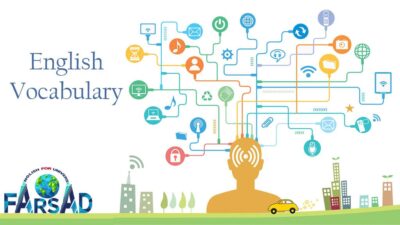Learning English Vocabulary
You’ve probably had a lot of trouble learning English vocabulary, so maybe the hardest and most tedious part of learning a language is because of a lot of vocabulary. One of the beauties of English is undoubtedly the multi-meaning of its vocabulary.
What is the best way to learn English vocabularies?
For example, the word ‘book’ means both book and booking, so it is very important to pay attention to the type of noun, verb, adjective or adverb in the learning process.
Another important thing that is currently happening (perhaps because of how language is learned) is ‘eye vocabulary learning’. We hear from learners that “if I see the word I can identify it and say its meaning” or “Please write the sentences so I can identify them” in the wrong way, which is very common and used during school. It affects the accuracy and speed of learning and makes it difficult for language learners during adulthood to quit. But the question is how to learn vocabulary.
If you notice in the community, people who are not inherently hearing impaired are unable to speak, while speech instruments such as speech centers in the brain, mouth, and tongue. Why is that?
The speech center in the brain becomes activated by hearing and grows if it reaches the feed through the ears, activated by the center and begins to process and reproduce vocabulary. Analyzes the concept of the word and saves it to the appropriate environment or emotions, so to learn the words effectively they must be heard correctly, understand the sense of the words, repeat them, and use the sentence.

Don’t forget that
Vocabulary has been meaningful to us since our childhood to meet the needs of children, a meaning that is meaningful to us as we age. To learn English vocabulary or any other language after hearing and practicing its correct pronunciation, you need to recreate and bring it up to the need (which can often be fictitious). Let me explain this in an example.
Consider the word “walk”. The pronunciation of this word is “wak”, and of course its “W” is pronounced with the lips laced, meaning walking and walking. Now imagine the image of a baby in mind. What is the relation of the word to this picture?
The answer to this question is the same as creating the need to recreate the vocabulary learned. Yes, a baby is not capable of walking, so the meaning of the word here would be walking, not walking. Now, create a concept (sentence) for the picture. The sentence is made as follows:
He can’t walk
Another picture of the park space and you. What is the sentence?
I go walking in the park. I talk about a walk in the park.
Correct Pronunciation
Learning the correct pronunciation along with word re-creation by creating an artificial need, in addition to helping to put the vocabulary in a proper classification, helps the speech part of the brain to flow the concept into the language, and because the word has color and meaning, it almost remains in memory forever. We will need two factors to learn an English vocabulary : first, pronunciation and second, the concept of correctly spelling the word helps the speech center in the brain to be ready to express and helps the memory by memorizing the vocabulary and example in most cases to put the word in the correct classification.
The sum of pronunciation and concept helps to recreate the word as needed. From the set ahead you will learn a circle of vocabulary that is very useful in everyday conversations. These vocabulary are stored in audio files in English and Farsi. This feature makes it easy to save vocabulary browsing.
The last point:
At the end of each section, there is an audio test, which is a challenge to make learning more engaging and a test for memorization. Note that the learning rate is always lower than the amount of data learned, which means that if we try to memorize the word during this process, we will typically insert 20 words into long-term memory. So the more data you enter into your short-term memory, the more vocabulary you have in your long-term memory. However, the number of forgotten vocabulary is always greater than the number of vocabulary learned.
There are also techniques that increase learning efficiency. The effective operation of these techniques is based on the principle of connection. The principle (bound & compound) that comes from my studies of the vocabulary learning process says that in order to memorize everything, it is better to link it to the possessions in our memory. This facilitates the formation of chemical bonds within the memory and makes the composition more adherent to memory. Our memories and lessons learned like glue bind new material to long-term memory. A word like camaraderie is probably new to you.
Repeat the word several times before doing anything, and then imagine that you need help and are having trouble at work. Then remember your friend. Your friend is helping you. how do you feel?
It’s a sense of collocation. By tying the word to memories, it is almost permanently stored in memory. Using mobile word learning techniques is another way to memorize English vocabulary that does not fit into this article because it requires a workshop in addition to theoretical explanations.
Courses link
Due to the very long time learning English in school environment and then in university, the output does not seem to be good enough while the course is long enough to expect good results. As experience shows, the lack of proper and efficient methods is the answer to why we spend time but do not get the results we need!
The Abstract of this article:
This article discusses how to learn and remember vocabulary in English, and presented effective techniques for better learning.
For Further studies:
1- What is the importance of learning English vocabulary pronunciation?


 فارسی
فارسی
